Why victims are quitting the criminal justice system
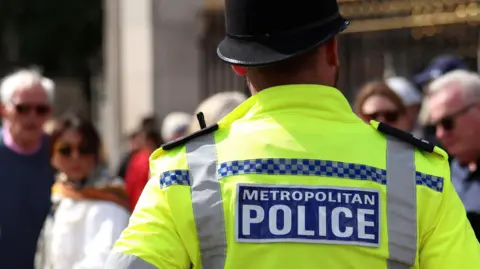 EPA
EPAWhen Karen told police she had been raped, she had hoped they would help her. Instead, she said the "absolutely horrendous experience" of reporting it caused her to drop the case.
The officer assigned to her case missed a scheduled phone call, then rang her unexpectedly at work and launched into deeply personal questions about the attack.
Karen said she understood why those questions were necessary, but they needed to be asked "with sensitivity and some preparation".
"I think to him it was just another phone call. He didn't think of me at all."
Karen, not her real name, is not alone in her experience.
A new report from London's victims' commissioner found "huge numbers" were abandoning the justice process before their case reaches court.
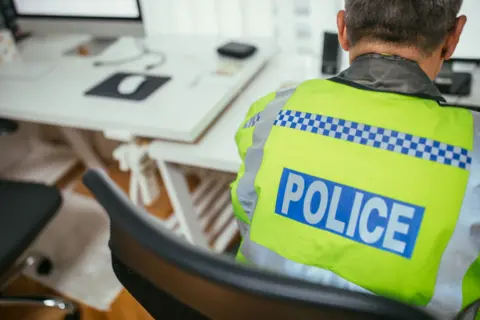 Getty Images
Getty ImagesKaren was told later that the officer who had handled her case so insensitively was actually a specialist in rape and sexual abuse.
"I think back to why I wasn't able to say then, 'I don't want to do this like this', but I think panic sets in, and you freak out. You're thinking, 'this is my only chance'."
She had previously had a poor experience when she tried to report being attacked, struggling to communicate with officers about the case.
'You don't care'
After this second experience, she said she felt she simply couldn't continue with the process.
There was no attempt to ask her why she wanted to drop the complaint.
Nor was there any effort to see if she needed any specific support.
"I think, if the officer had approached me with absolute empathy, if he had thought about my needs and arranged for a time to come a to a police station, and prepared me, and talked me through it, that would have made me feel differently.
"I just thought, you don't care."
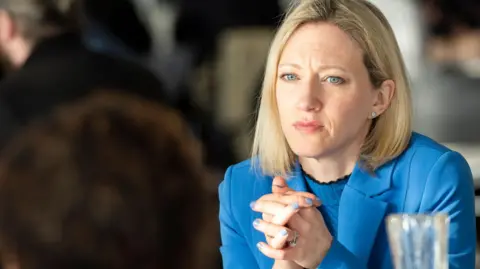 GLA
GLAThe research
- Information was taken about 270,000 crimes reported to the Metropolitan Police between April 2021 and March 2022
- More data came from CPS and Home Office figures from April 2021 to March 2025
- 40% (109,833) of all victims in the data set withdrew from the justice process prior to a charging decision being made
- The figure rose to 59% in domestic abuse cases, and for rape allegations associated with domestic abuse to 74%
London's independent victims' commissioner, Claire Waxman, said the findings amounted to "a national failure to deliver justice for victims".
She said she had commissioned the research in 2022 to fully understand why so many people were dropping out.
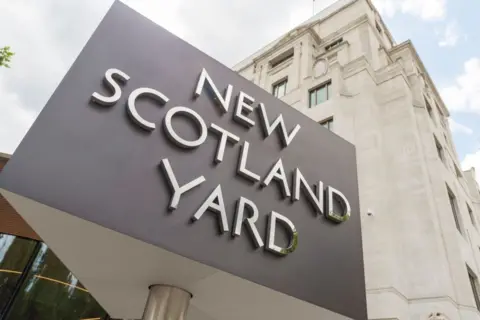 Getty Images
Getty ImagesThe report found some police officers lacked a "trauma informed" approach and victims described being dissuaded from pursuing their case.
One, who reported being sexually assaulted by someone they lived with, was told by an officer there had been cases of "people being stabbed to death and we have their faces on CCTV but they still don't get a conviction, so this won't go anywhere".
This victim was put off proceeding with the case and was not offered any referral into support.
He was raped twice after returning to live with the offender.
The minister for victims and violence against women and girls, Alex Davies-Jones, said the government had "inherited a courts system on its knees".
She pointed to plans put forward by Sir Brian Leveson, which include having cases normally tried by a jury instead being decided by judges alone.
She said ministers would respond to the proposals in the autumn.
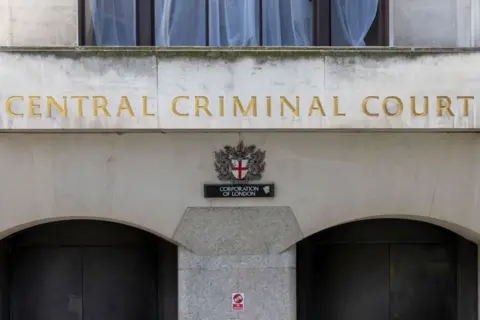 Getty Images
Getty ImagesMs Waxman praised the "good officers who go above and beyond" but said there were officers "who use victim withdrawal as an easy way of closing cases".
She added that when victims are brave enough to report a crime, "they deserve respect, support, and swift access to justice".
She said there was a lack of reliable data from the Metropolitan Police about people who disengaged, with one victim surprised to find their own case had been closed - and told it was because they had withdrawn from it.
Some victims were let down by language barriers and poor translation services.
Some were fearful their immigration status would be shared with the Home Office if they spoke to police.
Victims were more likely to withdraw if they were black or from other minority ethnic backgrounds, and withdrawal rates were higher if the offender is a current or ex-partner rather than a stranger.
Some were fearful of retaliation, with stalking protection orders sometimes taking weeks to secure through the courts.
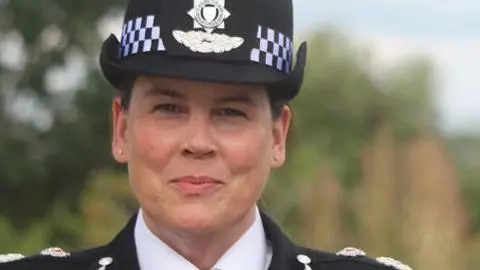 Met Police
Met PoliceA number of recommendations were made in the report, including improved oversight of the police of how they keep victims engaged, and recording the needs and vulnerabilities of victims.
It also called on the government to provide adequate funding to support services and to establish a victim care hub, which Ms Waxman said could provide a more efficient and joined-up approach.
She said, perhaps most urgently, the government must take action to clear the backlog of 77,000 cases waiting to be heard in the crown courts, with the Met identifying more than 100 cases listed for 2029.
Assistant Commissioner Pippa Mills said the Metropolitan Police was increasing the number of charges for serious offences, including rape and serious sexual assault.
However, that inevitably meant more cases going through the court system, which is already overwhelmed.
"The delays are intolerable for victims waiting for closure from often traumatic experiences.
"There must be a collective effort from government, partners and the criminal justice system to reform and reverse years of decline."
She added that the Met police was rolling out more training and has improved communication for victims.
London Mayor Sir Sadiq Khan said the Met had improved some of its services for victims, but said there were still "big parts of the criminal justice system journey" failing.
Listen to the best of BBC Radio London on Sounds and follow BBC London on Facebook, X and Instagram. Send your story ideas to [email protected]
